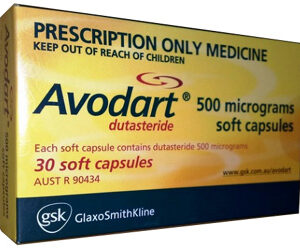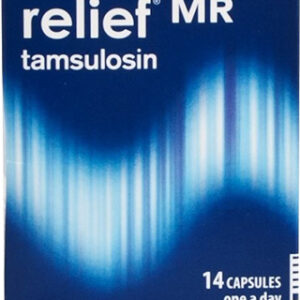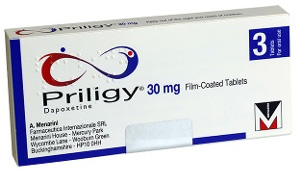Overview of Proscar
Proscar, a brand of finasteride, is a synthetic 4-azasteroid prescription medication designed to treat and manage certain medical conditions related to the prostate gland. By inhibiting the enzyme 5-alpha reductase, it prevents the conversion of testosterone to dihydrotestosterone (DHT), affecting the development and enlargement of the prostate gland.
Indications for Proscar
Proscar is prescribed primarily for men with benign prostatic hyperplasia (BPH), offering symptomatic relief and decreasing the probability of acute urinary retention and the need for surgical intervention. It is not indicated for use in women or pediatric patients.
Dosage and Administration
Proscar is administered orally, usually as a 5 mg tablet once daily, with or without food. It is essential for continuity of treatment to maintain its effectiveness, and it may be required for a period of six months or more to assess whether a beneficial response has been achieved.
Contraindications of Proscar
Pregnant women or those who may become pregnant should not handle crushed or broken tablets due to the potential for absorption and the subsequent risk to a male fetus. Additionally, patients with hypersensitivity to finasteride or any component of the product should refrain from using Proscar.
Warnings and Precautions
Care should be taken in the evaluation for prostate cancer, as Proscar can alter serum prostate-specific antigen (PSA) levels. Physicians should also monitor for obstructive uropathy and assess patient risk for high-grade prostate cancer prior to starting treatment.
Adverse Reactions
Proscar has been associated with sexual dysfunction (including decreased libido, erectile dysfunction, and ejaculation disorders), as well as hypersensitivity reactions. Changes in breast tissue, such as tenderness and enlargement, have also been reported.
Drug Interactions
There are no specific drug interactions of clinical importance identified with Proscar. However, interactions with other compounds that inhibit or induce CYP3A4 enzymes could alter finasteride metabolization and need to be taken into consideration.
Use in Specific Populations
Proscar should be used with caution in populations with liver and renal impairments, due to potential changes in drug metabolism and excretion. Its safety and efficacy in pediatric patients have not been established, thus it is not recommended for this group.
Proscar and Pregnancy
Proscar is contraindicated during pregnancy and can cause harm to the male fetus if a significant amount is absorbed by a woman carrying a male baby. Effective contraception methods should be discussed with women of childbearing potential using Proscar.
Proscar and Nursing Mothers
Proscar is not indicated for use in women, therefore it should not be administered to nursing mothers. It is not known if finasteride is excreted in human milk.
Effects on Ability to Drive and Use Machines
No studies on the effects on the ability to drive and use machines have been performed. Nonetheless, patients should be aware of their individual reaction to Proscar before engaging in activities that require alertness.
Overdose and Management
In the event of an overdose, general supportive care should be given. There is no specific antidote for Proscar overdose, and dialysis may not be effective, as finasteride is highly protein bound.
Clinical Pharmacology of Proscar
Proscar’s clinical pharmacology entails the reduction of DHT activity within the prostate, leading to shrinkage of the enlarged prostate in most men and a resultant increase in urinary flow rates.
Mechanism of Action
Proscar acts by inhibiting type II 5-alpha reductase, the enzyme that converts testosterone to DHT in various tissues including the prostate gland. This action results in lower levels of DHT, leading to decreased stimulation of prostate cell growth.
Pharmacokinetics of Proscar
The pharmacokinetic profile of Proscar demonstrates absorption from the gastrointestinal tract, peak plasma concentrations appearing in the blood within hours, and biotransformation predominantly in the liver. Its elimination half-life allows for once-daily dosing.
Proscar and Renal Impairment
There is no need for dose adjustment for patients with varying degrees of renal impairment, as finasteride is extensively metabolized in the liver and excreted primarily in urine as metabolites.
Proscar and Hepatic Impairment
Patients with significant hepatic impairment should be cautiously monitored due to the potential for drug accumulation, as Proscar is metabolized extensively in the liver.
Proscar and Elderly Patients
No specific dosage adjustment is required for elderly patients, though individual responses and sensitivities to drug therapy should be considered.
Proscar and Pediatric Patients
The safety and efficacy of Proscar in pediatric patients have not been established; therefore, its use is not recommended within this population.
Proscar and Gender-Specific Use
Proscar is exclusively indicated for male patients, mainly for the management of BPH. It should not be used in women due to lack of efficacy and potential risk to a male fetus.
Patient Counseling Information for Proscar
Patients should be informed about the potential for sexual side effects, the importance of adherence to therapy, and the need for regular follow-ups. Moreover, they should be advised on the potential risks to a male fetus if a woman is exposed to finasteride during pregnancy.
Proscar and Finasteride
Finasteride is the active ingredient in Proscar and functions as an inhibitor of the enzyme responsible for the transformation of testosterone to DHT. As its active compound, finasteride provides the therapeutic benefits associated with Proscar.
Storage and Handling of Proscar
Tablets should be stored at room temperature, away from moisture and heat. Handle with care to prevent exposure to the active ingredient, especially for women of childbearing potential.
Proscar Availability and Pricing
Proscar is available through prescription and pricing may vary. Financial assistance or generic options might be available to alleviate costs.
Manufacturer Information
Proscar is produced by Merck & Co., Inc., a global healthcare company known for its commitment to research and development of pharmaceutical therapies. Detailed manufacturer information can be obtained from the company’s official channels.




Reviews
There are no reviews yet.